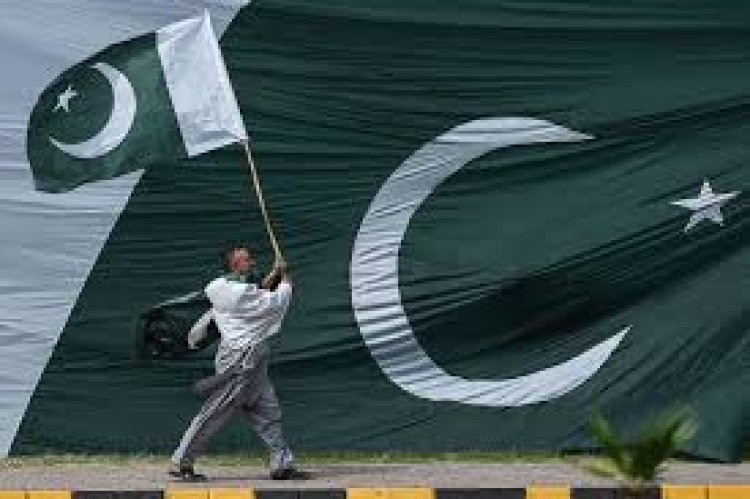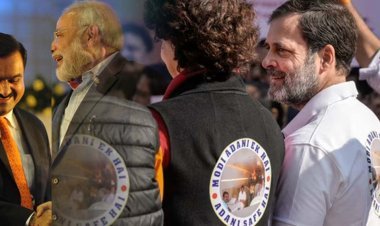Garrison Empire of Pakistan is Falling Apart
In military regimes, generally a dictator emerges, who consolidates power and limits corruption to one’s family and few loyalists. In case of Pakistan, however, th looting of public wealth has been more widespread, perpetuated by the top Generals who have wielded power covertly or overtly.

By Meher Shah :
When Md Ali Jinnah espoused the two-nation theory, he assumed Islam would be enough to bind the nation together. In fact, Pakistan had enough even without this strong ideological and religious binding to build a strong and successful nation. Unfortunately, the Military soon hijacked the Pakistan’s political establishment, and have since maintained a stranglehold on it.
In military regimes, generally a dictator emerges, who consolidates power and limits corruption to one’s family and few loyalists. In case of Pakistan, however, th looting of public wealth has been more widespread, perpetuated by the top Generals who have wielded power covertly or overtly. To ensure a safe exit, they accommodated a wider coterie of military generals, bureaucrats, Judges and politicians, especially from the Punjab – Sindh belt to enjoy the fruits of corruption. The ‘Establishment’ or ‘Deep State’ as this nexus is often referred, converted Pakistan into a corrupt and exploitative Garrison State, with Punjab and to certain extent Sindh acting as the core and the rest acting as peripheral colonies.
The establishment had traditionally managed regime change by vilifying the incumbent regime with corruption charges, while the Army kept its image clean, projecting itself as the ultimate savior of the nation. The Panama Papers however muddied the water as many generals were also named in the paper in addition to the politicians. The Establishment needed someone with a clean image, and who better than ‘Im the Dim’ as Imran Khan is referred in the military circles. They mistook him for a vain and gullible fool, who will allow the puppetry to continue unhindered as long as he is allowed to be the face of the government.
He was to be opiate for the masses, selling the dream of Naya Pakistan, while Purana Pakistan continued to do what it did best.
The establishment was partly right. Imran Khan has a huge vanity complex and he loves to play to the gallery, but he unfortunately also suffers from a huge ‘God Complex’, something he perhaps picked during his captaincy stint when he took Pakistan from near elimination to a fabled cricket World Cup win. After managing to get a toe hold in the power corridor, he started flexing his muscles much to the discomfort of the establishment. Eventually all the major factions of the establishment had to come together to get rid of the Jinn they created.
Imran Khan, however, refuses to go down quietly. He has maintained a clean public image and the establishment’s old trick of throwing corruption charges at the incumbent regime is not sticking. He has managed to maintain his public support intact, especially amongst the youth and the middleclass. However, what worries the establishment more is that he has considerable following amongst the ranks and files of the Army. The establishment could attempt to eliminate Imran Khan, which he is acutely aware of. He has wisely chosen to go public with his fears, threatening the establishment of dire consequences if he is to be harmed. The social media has amped up all these conspiracy theories, resulting in a public frenzy of Imran’s safety and well-being.
Theatrics aside, Imran is right for the part that Establishment is weaker and divided than ever before. The senior leadership too have lost their militaristic authoritarianism. As corruption and favoritism grew in the Pakistan’s military establishment, the higher echelons got increasingly filled with corrupt deal-makers and profiteers who are more interested in filling their coffers than getting involved any harsh authoritative crackdown. The ranks and files of the Military are also demotivated due to increased attack from TTP and BLA insurgents. From January to March this year, Baloch insurgents have carried out more than 20 attacks resulting in more than 80 security personnel being killed. The Islamic Jihadi ideology has seeped deep into Pakistan’s military barracks. They have been fed on a staple diet of anti-India rhetoric and jihad against the infidels and now find it difficult to fight jihadist, with whom they are ideologically aligned.
The Pakistan’s economy is also on a terminal decline – pushed deep into debt trap by none other than China, Pakistan’s Iron brother. China appears to be in no mood to dole out any freebies and it appears poised to take more that it’s fair pound of flesh from Pakistan’s economic woe. Arab Nations, whom Pakistan has milked all along on the name of Islam, also appear reluctant more than ever. Most of these Arab Nations are monarchies. They have managed to prevent radical Islam from taking roots in their nations with an Iron fist. However, the risk of street protests and political mobilization on the name of Islam is seen as a real threat after the Arab Springs. Pakistan unfortunately happens to be hotbed for both these phenomena and Arab nations seem not too confident to continue funding Pakistan, which in turn allows these radical ideologies to grow and spread.
With his latest threat of Army losing its nuclear arsenal and the country balkanizing into three, Imran Khan has managed to hit the very core of establishment’s fears. The fact that General Bajwa has conducted two Formation Commanders’ Conference (FCC) within seven weeks shows how divided and weak the establishment is currently. Western powers seeking for a nuclear disarmament in lieu of an economic bailout appears to be very real possibility. If so, Pakistan’s army’s ability to maintain territorial integrity against guerilla warfare unleashed by the likes of TTP and BLA, who feel they can replicate Taliban’s success in the neighbourhood, seems slim.
mran Khan is clever in predicting a three-way splitting of the nation instead of four. He deliberately chose to keep Punjab and Sindh together to reflect the present arrangement between the PPL and PML(N). Imran Khan is of Pashtun origin, and he has a solid support base in the Khyber-Pakhtunkhwa region. His choice of Army Chief, Gen Faiz Hameed, although of Punjabi origin, is from Baloch Regiment. What Imran is suggesting to the establishment seems to be a power sharing arrangement between the regions.
Vanity is the key to Imran Khan’s soul and greed is the grease that keeps establishment running. It appears for now that some deal will be stuck between Imran Khan and the establishment at the expense of ordinary citizenry. The Garrison State of Pakistan for now appears weak. The establishment believes firmly that it is the Army that keeps the State from falling apart. Hence, despite experiencing galloping inflation and wide-scale food, power and fuel shortage, they have chosen to increase spending on its defence by a whopping 6% instead of providing relief to the poor. Unfortunately, the money is unlikely to even reach the barracks. The Generals running the Pakistan’s Milibus are likely to divide the spoilt amongst themselves. The establishment knows that their ship is sinking and rats are preparing to jettison.

















